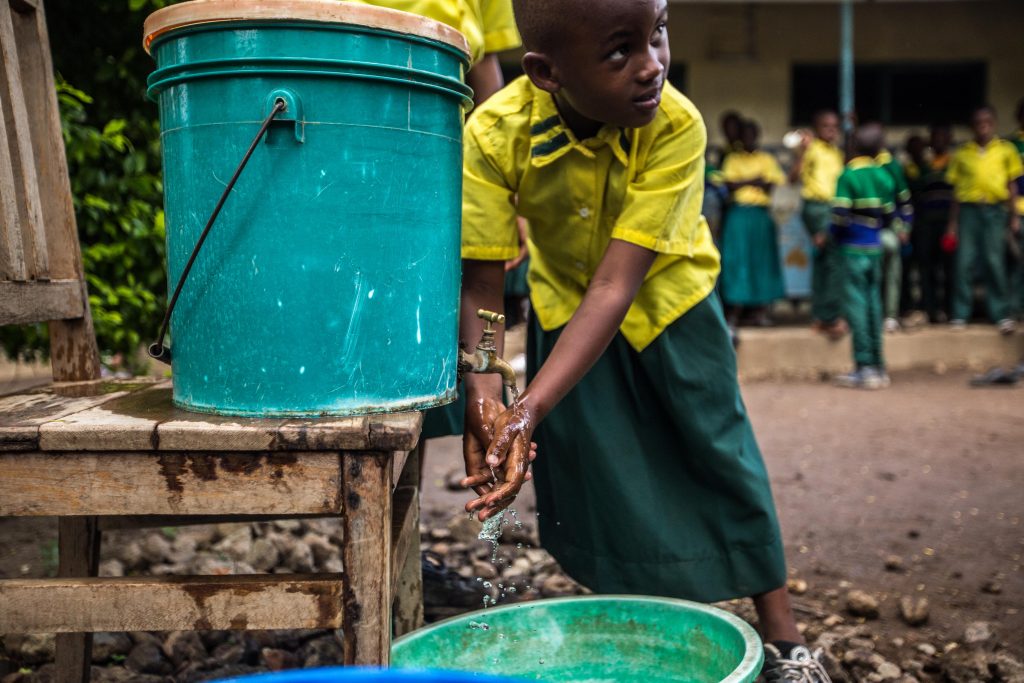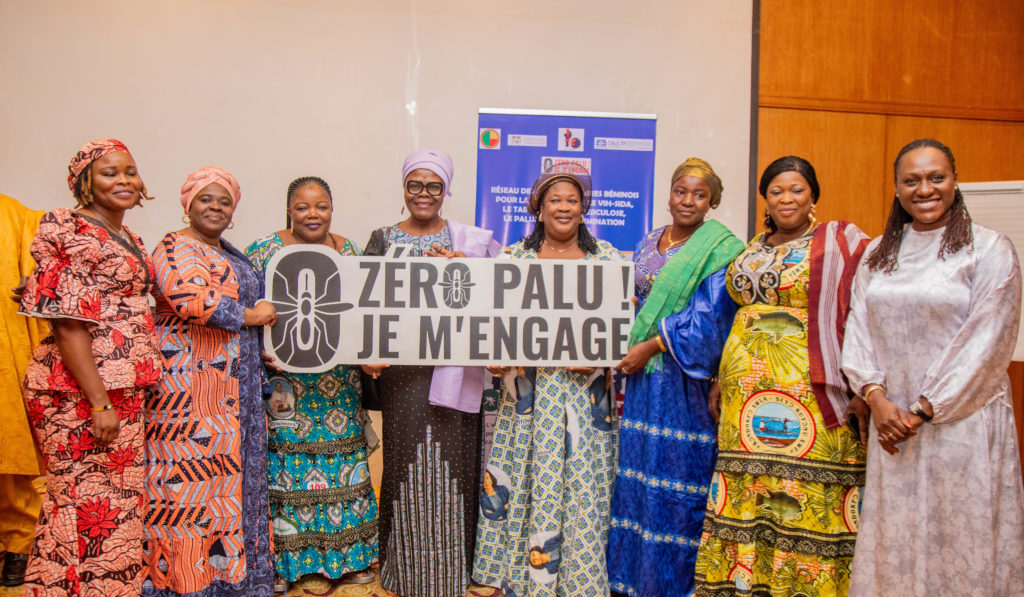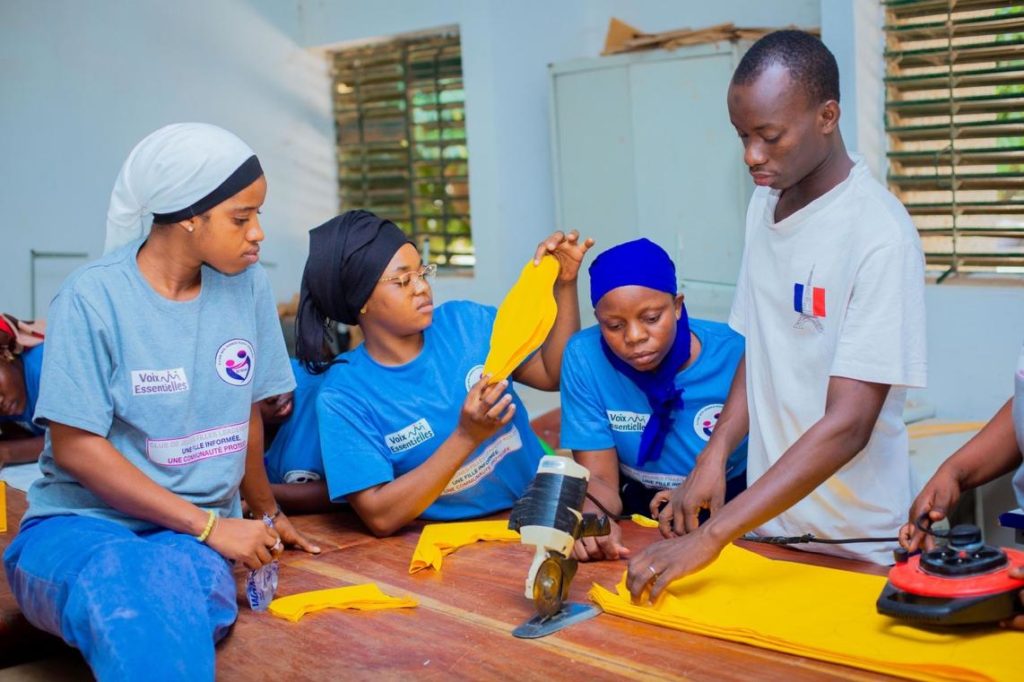Breaking the pandemic cycle: Improving access to safe water, adequate sanitation and hygiene

April 7 of each year marks the celebration of World Health Day. It provides an opportunity to focus world attention on a health problem.
World Health Day this year will be celebrated under an unprecedented threat to our daily lives: the Covid-19 pandemic. There is currently no cure but key among protection measures and means to slow down or stop the spread of the virus is the hygiene behavior of Handwashing with soap.
Handwashing with soap is an important public health activity and huge barrier to many diseases. Access to clean water is indispensable for proper handwashing. However, for many people across the world and especially in Africa, access to basic handwashing facilities with soap is still lacking. Therefore, those unserved people will see their vulnerability increased and their lives more seriously threatened by the pandemic.
For AMCOW, it is an opportune time to remind our governments that access to adequate and clean water and good sanitation and hygiene services are essential components of providing basic health service and constitute the primary drivers of public health.
This year, the tagline for World Health Day 2020 is: Support nurses and midwives.
The Covid-19 pandemic has exposed how poorly prepared is the global community to face a disaster of the nature and magnitude of the current coronavirus pandemic. All nations, including the so-called powerful ones, are seriously challenged. Nurses, midwives and all other caregivers are deployed at the frontline, in most cases inadequately equipped for the battle against Covid-19. They put their lives at high risk in order to save others’ lives. Their courage and dedication are commendable.
The task of nurses and midwives is very challenging and somehow frustrating where and when there is poor access to clean water, adequate sanitation and hygiene services. At AMCOW, we see the devastating impact that poor access to WASH services has on Africans’ health and ultimately on Africa’s economies and development prospects.
Indeed, according to the Joint Monitoring Programme 2019 report[1] by UNICEF and WHO, in Sub Saharan Africa 83% of healthcare facilities have no water services, 80% have no sanitation services and 49% have no hygiene services. Providing safe water, adequate toilets and hygiene in homes and health centres will prevent the spread of infectious diseases and protect health staff and patients.
Governments must act now to ensure better coordination between ministries and organisations responsible for health and those leading on water, sanitation and hygiene, to ensure clean water, sanitation and hygiene are properly integrated into national healthcare policies, programmes and strategies.
At AMCOW, we have been working to improve the prioritization of water and sanitation. As part of our mandate, we have the responsibility to effectively and efficiently coordinate actions of key water and sanitation players, facilitate the strengthening of regional cooperation and transboundary water resources management and development as well as build the capacity of relevant institutions and agencies. As part of our work, the Ministers in charge of sanitation under the AfricaSan platform ensured that handwashing is paramount among the commitments they made as part of the Ngor Declarations of 2015 though pronunciation of the commitment no 6 to: “Ensure inclusive, safely-managed sanitation services and functional hand-washing facilities in public institutions and spaces (national and sub-national)”. We are working with member states to advocate for the implementation of this commitment along with others, and track and report progress.
We are also coordinating the development of the Africa Sanitation Policy Guidelines (ASPG) which will provide the necessary guidance to enable African countries to develop WASH policies that can provide the necessary foundation for improving access to water, sanitation and hygiene services to all and, as a result, enable health systems to improve Africa’s resilience to pandemics like the COVID-19.
Health for All cannot be achieved without WASH for All. African Governments and donors must significantly and urgently increase financial resources allocated to the WASH sector and ensure that game changing policies and strategies are developed and implemented, that actions targeting the most marginalised and vulnerable people are identified.
As the nurses and midwives continue their work, with bravery, at the frontline of the fight against COVID-19, we owe support; and the most critical one is to ensure that they have unfettered and sustained access to clean water, improved sanitation and hygiene services so that they can focus better on saving lives and as a result contribute to the driving socio-economic development for our continent and the world at large.
[1] WASH in healthcare facilities – Global Baseline Report 2019
By Dr.Canisius Kanangire, Executive Secretary of the African Ministers’ Council on Water (AMCOW)


